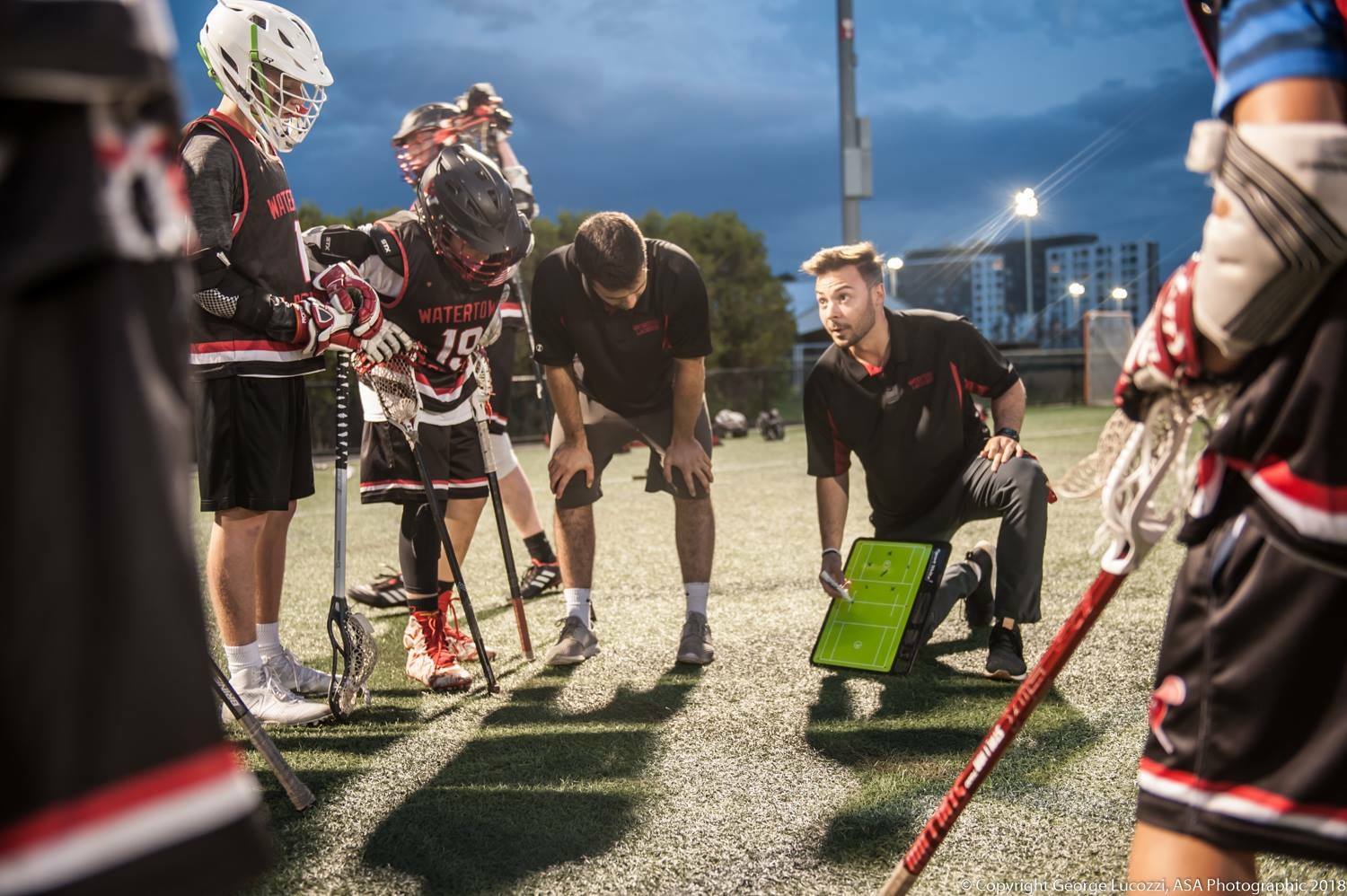What steps can coaches take to build and sustain a healthy team culture? In the Competing Values Framework developed by the University of Michigan’s Robert Quinn and Kim Cameron, there are four drivers that contribute to organizational cultures.
The four drivers can be combined in many different ways to produce a success conducive environment.

Create: Neal Anderson is always looking at new ways to bring out the best in his Norwich University men’s lacrosse team. Neal is a student of the game and of human behavior. He creates situations for his team so they can better handle change and risk. His committed players have horizontal accountability as well as vertical accountability. This helped them win the 2019 Conference Championship.
Collaborate: Maureen Spellman spends a lot of time developing her Endicott College women’s lacrosse team captains and seniors to ensure that they understand how important they are to the team. She trusts the upper classmen to make decisions on their own and delegate what they want to delegate.
She says, “At the beginning of the year, we go through and decide as a team: ‘What do we want this year to look like? What are the things we really want to focus on as a group?’ Every year there is a different team, so we can have a new team culture. Developing that positive team culture means that when somebody is not playing at their best, we know who is going to pick them up. I think that having that positive culture makes everybody’s experience a lot better. It builds a lot more trust.”
Control: Katharine DeLorenzo’s Middlebury field hockey teams pay attention to details, roles, and routines. They make good use of the control driver. She emphasizes that each player matters, and it is essential that they feel engaged and relevant as a member of the team.
Athletes have a voice in making strategic and tactical decisions. Do they compete? Yes! The team has won many Division III National Championships, with the coaching staff being named multiple times as National Field Hockey Coaches Association (NFHCA) National Coaching Staff of the Year.
Compete: Brian Kelly, former head coach of the Notre Dame football team and new head coach at LSU, claims that results are essential. It is necessary to compete to win games. There is an even wider view of competitive results that includes bringing out the best in all participants and competing against team standards. There is a lot at stake at this level. Compete is not the only driver important to LSU. They also pay attention to details (control) and teammates working together effectively (collaborate) to bring the greatest opportunity to win every Saturday during the season.
Evaluating Culture Drivers
There may be one driver that is dominant for a particular team, but every team culture has some degree of all four drivers. It is possible for teams to over-focus on a dominant driver to the neglect of the others. If culture issues come up, one action is to use the following exercise below to review current balances. This can give coaches ideas for adjusting behaviors to concentrate more or less on each culture driver.

You can learn more about building and sustaining team culture in The Coaching Zone: Next Level Leadership in Sports and participating in The Coaching Zone Masterclass.

